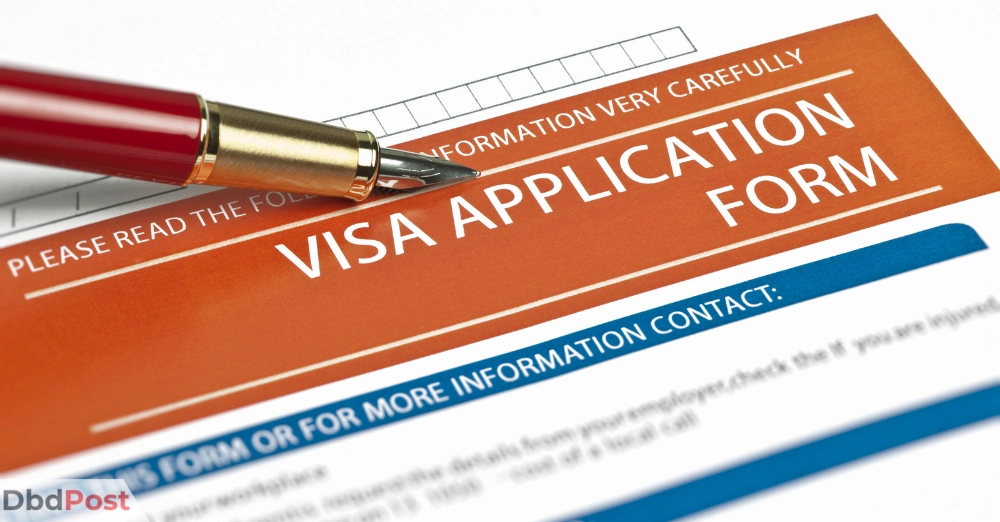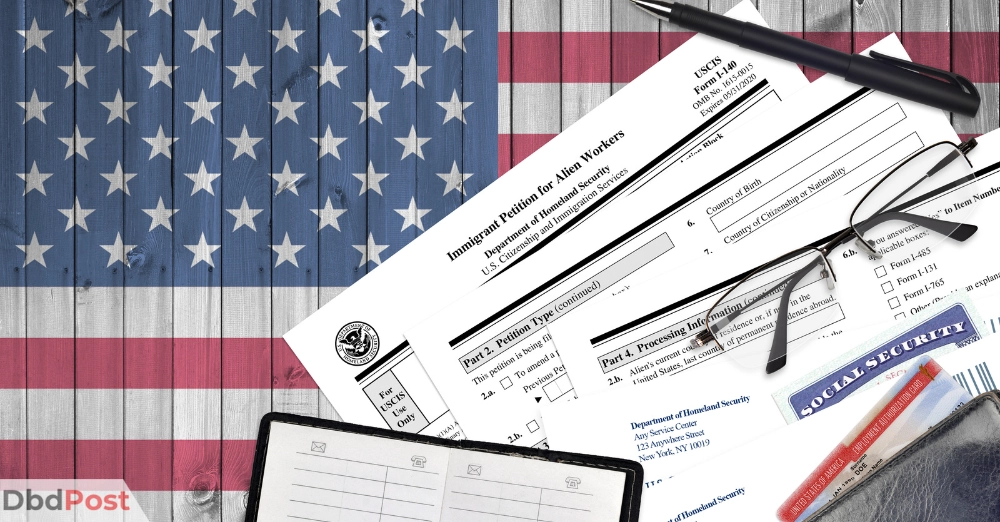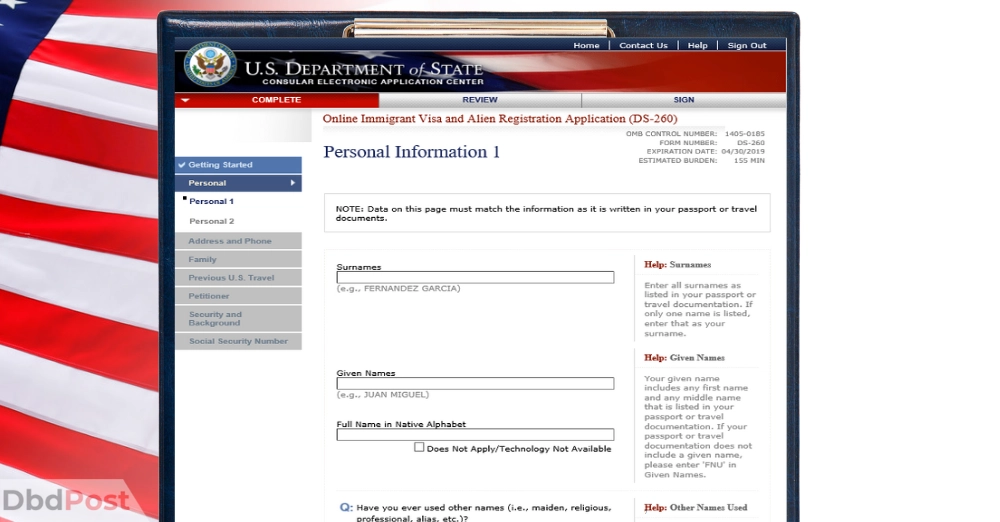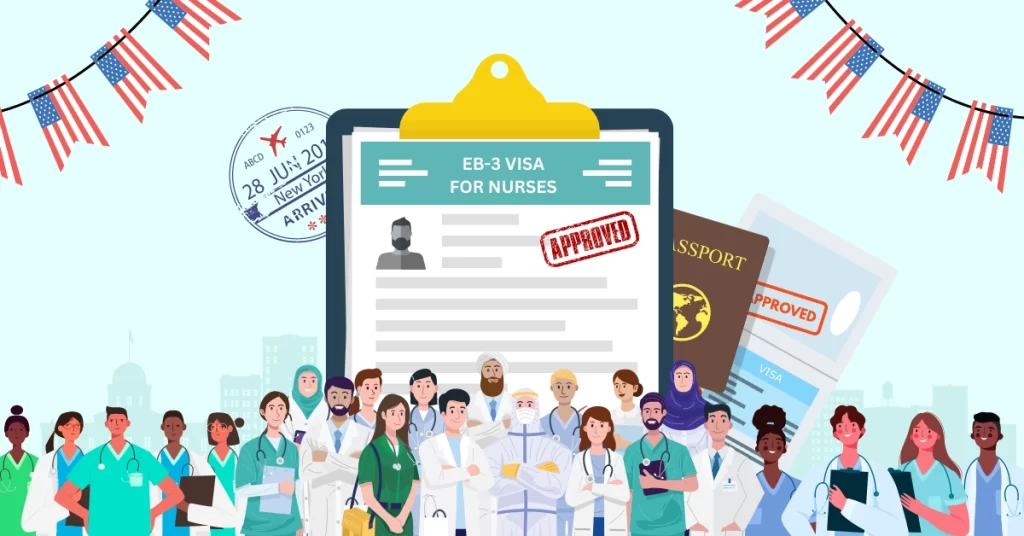The EB-3 visa is an employment-based visa that allows foreign workers to live and work in the United States. The EB-3 visa for nurses who want to work and live in the US is a fantastic option.
Obtaining an EB-3 visa for registered nurses is essential for professionals who wish to work and live in the US. The process involves several steps, including application, fees, processing time, and meeting specific requirements.
This Dbd guide will guide you through all the processes required to obtain an EB-3 visa for foreign nurses. We aim to increase your chances of obtaining an EB-3 visa and fulfilling your American dream.
What is EB-3 visa for nurses?
The EB-3 visa allows skilled nurses to work and live in the United States. A skilled worker visa requires two years of training, experience, or medical practice.
To apply for an EB-3 green card for nurses, you must meet educational, training, or experience requirements. [1]USCIS, “EB-3 visa, … Continue reading
First, employer must file Form I-140 on behalf with U.S. Citizenship and Immigration Services (USCIS). Similarly, employer must also provide evidence supporting wage in the geographic area that they are working in.
If your I-140 petition is approved, your spouse and unmarried children under 21 may be eligible to apply. They can apply via E34 (spouse of a “skilled worker” or “professional”) or EW4 (spouse of an “other worker”) and E35 (child of a “skilled worker” or “professional”).
EB-3 visa for nurses requirement
Specific eligibility requirements must be met for nurses who want to apply for an employment-based visa.
The basic requirements for visas for healthcare professionals include the following:
- You must have at least two years of practice nursing or training that is not of a temporary or seasonal nature.
- Additionally, you must have an equivalent registered nurse license recognized by the sponsor or organization.
- You must perform work for which qualified workers are unavailable in the US.
- A labor certification and a permanent, full-time job offer are required.
- Furthermore, you must have earned a bachelor’s degree from foreign nursing schools.
Similarly, you must gather several documents to support your application. The required documents include the following:
- A valid passport for at least six months after your intended departure to the US.
- A job offer from a US employer.
- An approved labor certification from the US Department of Labor.
- An approved petition from the US Citizenship and Immigration Services (USCIS).
- A confirmation page for Form DS-261, which is the Choice of Address and Agent form.
- Signed medical and vaccine documents.
- Two photographs that meet the US visa photo requirements.
- Academic achievements, such as diplomas and certificates.
- A CV or resume.
- Court and criminal records.
It is important to note that the National Visa Center (NVC) might require additional supporting documents depending on the case. Follow their instructions carefully and provide all necessary documents.
Finally, after you have gathered all the necessary documents, you can complete and submit the visa application forms.
How to apply for an EB-3 Visa for nurses?

In this section, we will provide a step-by-step guide on how to apply for an EB-3 visa for nurses.
Step 1: Determine eligibility
To be eligible for an employment-based visa as a nurse, you must have at least two years of job experience or training that is not temporary or seasonal.
You must also perform work for which qualified workers are unavailable in the US.
Additionally, you must have earned a US bachelor’s degree or its foreign equivalent, and a labor certification, and a permanent, full-time job offer.
Step 2: Find an employer sponsor

Finding a qualified employer willing to sponsor the EB-3 visa for nurses is crucial. The employer sponsor is responsible for filing the necessary paperwork and submitting the required documents to USCIS.
Here are some tips and resources for finding an employer in the United States:
- Use online job search platforms such as LinkedIn, Glassdoor, and Indeed to search for nursing job opportunities in the US.
- Reach out to recruiters and staffing agencies that specialize in healthcare placements.
- Contact hospitals and healthcare facilities directly and inquire about available sponsored nursing positions.
- Attend job fairs, networking events, and webinars to expand your network.
- Utilize social media platforms to connect with healthcare professionals and employers in the US.
- Consider reaching out to nursing associations and organizations.
Step 3: Fill out a Labor Certification

Filing a labor certification through the United States Department of Labor (DOL) is necessary for employment-based immigration. The purpose is to prove to the DOL that no qualified U.S. healthcare professionals are available. Therefore, an employer must seek foreign workers to fill the position. [2]DOL, “Labor certification overview, … Continue reading
To file a labor certification, the employer must determine which category their potential employee falls under based on the visa preference category. They must then complete and submit the ETA 9089 to the DOL.
Filing a labor certification through the United States Department of Labor (DOL) is a multi-step process. This requires the employer to provide detailed information such as:
- Detailed business information (Name, location, contact, number of employees, and more)
- Employer or sponsor information
- Attorney info
- Wage information
- Job details
- Immigrant details
Step 4: Fill out the I-140 form

Form I-140, also known as the Immigrant Petition for Alien Workers, is filed by an employer on behalf of a foreign worker.
Here’s how to file Form I-140:
- Download I-140 form from the official website.
- Fill out the form accurately. Provide information about the employer sponsoring the nurse, the employer’s name, address, and contact details.
- Provide information about the foreign worker (the nurse), including their full name, date of birth, country of birth, and citizenship.
- Information about the nurse’s qualifications, work experience, and certifications or licenses.
- The employer must also provide details about the job offered to the nurse, including the job title, duties, and salary.
- Submit the completed form, supporting documents, and the filing fee to the USCIS.
- The supporting documents include educational and work experience certificates, proof of the employer’s ability to pay the offered salary, and more.
Step 5: Fill DS-260 form

Form DS-260, the Immigrant Visa and Alien Registration Application is a crucial document required for individuals who wish to obtain an immigrant visa to the United States.
The online form must be filed through the Department of State’s Consular Electronic Application Center (CEAC) website.
Here are the steps to follow to file Form DS-260:
To file the DS-260, visit the CEAC website and enter your case number.
The DS-260 form is divided into several sections. You must complete each section accurately. The form requests biographical and background information, including:
Personal information
This section requests your full name, date, place of birth, gender, marital status, and contact information. You will also be asked for your passport information and expiration date.
Family information
In this section, you must provide information about your spouse, children, parents, and siblings. You have to provide their full names, dates of birth, and current locations.
Furthermore, you must state all the info if your family members have previously immigrated to the United States.
Address and contact information
You must provide your current and previous addresses, phone numbers, and email addresses. You will also need to provide information about your current employer or school.
Education, work, and training
This section requests information about your educational background, degrees, and any training. You will also be asked to provide information about your current and previous employment.
Previous U.S. travel history
You must provide information about your previous US trips if you have any. This includes the dates you and the purpose of your visit.
Petitioner information
If someone else is sponsoring your nurse immigration application, you must provide their name, address, and relationship to you.
Security and background check
This section requests information about your criminal and medical history. You’ll be asked about involvement in any criminal activities or if anyone close to you is involved. You’ll also be asked for any arrests or convictions.
Social Security Number information
In this section, you will be asked for your Social Security Number (SSN) if you have one. If you do not have an SSN, you will be asked if you have applied for one or if you are eligible to apply for one.
Finally, you can save your progress and return to the form later if necessary. When you are satisfied that the information you have provided is correct, sign and submit.
Step 6: Attend interviews and appointments

Interview during visa processing is crucial for the applicant to prepare for the interview. This step includes scheduling and completing the medical examination, registering for courier, and gathering documents.
During the interview, the applicant must also pay attention to instructions provided by the embassy. The instructions include registering for a courier to deliver your passport and visa after the interview.
Gathering all required documents, including civil documents and photographs, is essential. Failure to bring all required items may delay the processing of your visa and may require additional interviews.
Documents you need to bring to the interview are:
- Appointment letter
- Passport
- Photos
- DS-260 confirmation page
- Civil documents
- English translations if documents are in a foreign language
- Visa fees
You can contact the Embassy if you need to postpone your interview.
Step 7: Wait for visa approval

Once you complete all the necessary steps, the consular officer will decide on the visa application.
The processing time for the EB-3 visa can vary depending on the country of origin, the number of applications received, and other factors. Some applicants may receive a decision within a few weeks to months.
Several potential delays or obstacles may arise during the approval process. These may include:
- Administrative delay
- Additional documentation, if asked
- Backlog due to the high demand for EB-3 visas
- Your incomplete application
- Any changes in EB-3 visa policies
It is essential to remain patient during the waiting period and monitor the visa application status.
EB-3 visa processing time for nurses
The processing time for an EB-3 visa application for nurses can vary depending on several factors. However, on average, the processing time for an EB-3 visa application for nurses can range from 12 months to 3 years.
Here is a general timeline that nurses can expect to follow during the EB-3 visa application process, along with potential delays or obstacles that may arise:
- Submitting the petition: The first step is for the employer to file a labor certification with the Department of Labor. This process can take anywhere from several months to over a year, depending on the workload of the Department of Labor.
- Filing the I-140 petition: Once the labor certification is approved, the employer can file the I-140 petition with USCIS. This process can take several months.
- NVC processing: If the I-140 petition is approved, the case is forwarded to the National Visa Center (NVC) for processing. This process can take several months.
- Paying fees: The nurse will need to pay various fees, such as the visa application fee and the fee for the medical examination.
- Filing the DS-260 form: The nurse must fill out the DS-260 form and provide biographic and background information.
- Document gathering: The nurse must gather all necessary documents, such as civil and financial documents.
- Interview preparation: You must prepare for the consular interview, which can include practicing English language skills and reviewing potential interview questions.
- Applicant interview: The nurse will attend the consular interview, which can take several hours.
- Visa approval: If the visa is approved, the nurse can expect to receive the visa within a few weeks.
How much does it cost to apply for an EB-3 visa for nurses?
The EB-3 visa is an employment-based green card for professional, skilled, or other workers.
The costs are divided among the sponsor and the applicant and can vary depending on several factors.
Costs to be borne by the employer
The cost of an EB-3 visa includes a $345 fee to get the visa and a $700 I-140 form filing fee. If premium processing is used with the I-140 form, the fee is $2,500. [3]US government, “Fees, https://travel.state.gov/content/travel/en/us-visas/visa-information-resources/fees/fees-visa-services.html”
Costs to be borne by the applicant
As an applicant for an EB-3 visa, you will be responsible for paying several costs.
- Medical fees
- Document translation (if necessary)
- Counselor fees
- English language proficiency test
- Visa issuance fee
Related Stories
- Check our guide to learn everything about EB-3 Visa.
- Find out everything you need to know about how to immigrate to Portugal with our guide.
- Find the best EB-3 Visa lawyer with our guide- here.
FAQs
What is the minimum educational qualification required for EB-3 visa for nurses?
To qualify for an EB-3 visa as a nurse, you must have a degree or diploma from an accredited nursing school. Also, you must be registered with equivalent nursing licensure of the country.
Can a nurse apply for an EB-3 visa without a job offer in the US?
No, a nurse cannot apply for an EB-3 visa without a job offer in the US. To apply for an EB-3 visa as a nurse, the applicant must have a job offer from a US employer willing to sponsor them for the visa.
Final thoughts
In conclusion, the EB-3 visa for nurses is an excellent option for skilled foreign workers. However, the process requires meeting specific eligibility requirements with documents.
Overall, the EB-3 visa for foreign nurses can be a life-changing opportunity for those eligible and willing to put in the effort.
- 107shares
- Facebook Messenger
About the author

Raju Chopra
Raju Chopra is an experienced immigration attorney with a Master's degree in Law from the University of Colorado Boulder. He has worked on international immigration matters for the past ten years, helping clients navigate the often confusing world of global visa laws and regulations. Raju is passionate about offering practical legal advice and guidance to those looking for work abroad or seeking visas for travel.




